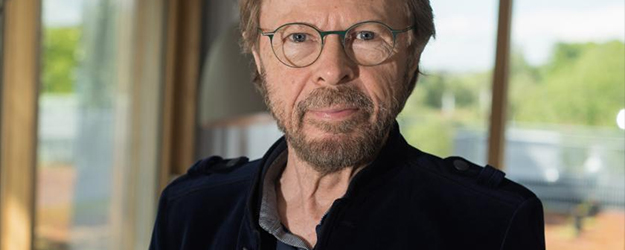This website uses cookies so that we can provide you with the best user experience possible. Cookie information is stored in your browser and performs functions such as recognising you when you return to our website and helping our team to understand which sections of the website you find most interesting and useful.
Artist News Business News Digital Industry People Labels & Publishers
Abba’s Björn Ulvaeus makes proposals for rebalancing the song economy
By Chris Cooke | Published on Monday 19 April 2021

Abba’s Björn Ulvaeus this weekend teamed up with music business consultancy MIDiA to launch a new report called ‘Rebalancing The Song Economy’, another contribution to the ongoing debate around the economics of streaming, specifically from a songwriter perspective.
The report reviews the impact that the shift to streams has had on the record industry and the songwriter community over the last fifteen years, as well as reviewing the impact of COVID on music-makers in general and the debates the pandemic has sparked about the streaming economy.
It then makes a number of recommendations, supporting some previously discussed proposals for reconfiguring how streaming works, and also putting the spotlight on some less-talked-about changes that could be considered by record labels, music publishers, collecting societies and the streaming services themselves.
Writing about the report in The Guardian this weekend, Ulvaeus says: “‘Rebalancing The Song Economy’ shows that we live in an era where the song fuels everything: whereas albums used to be the go-to consumption format, the dominant currency in streaming is individual songs; data shows that when people use a streaming platform such as Spotify, they search more for songs than they do for artists. That means songwriters are more important than ever – but, if you are a songwriter, the system is dysfunctional”.
“Streaming has changed everything”, he adds, “but songwriters are last in line for streaming royalties: the system works in such a way that for a million subscriber streams, an independent label artist could earn more than $3,000 (£2,175), whereas the songwriter could expect to earn between $1,200 (£870) and $1,400 (£1,015) and, even then, only if they are the sole songwriter on the track”.
“If you co-wrote the song, that money is split between you and your fellow writers”, he goes on. “On average, songwriters therefore earn between a third and a half of what artists do. If we live in a ‘song economy’, that’s unfair: the distribution of royalties needs to change to reflect that”.
The report itself states that “the song economy requires an interconnected set of solutions across three areas: songwriter remuneration and share; streaming pricing; and culture and consumption, with rightsholders and streaming services working together”.
On the first of those areas, the report supports a user-centric approach to royalty distribution which, although possibly “complex to implement”, will “bring a crucial foundation of fairness into the song economy”.
It also unsurprisingly calls for a further re-slicing of the digital pie to the song’s advantage, noting that of the streaming monies paid to the music industry today, approximately 80% currently go to recordings and 20% to songs. “Royalty splits still need to reflect the investment labels make, so a 50/50 share is neither realistic nor equitable”, it concedes, however, “there is scope for some middle ground”.
On the second area of reform – ie pricing – the report states: “Streaming pricing needs a rethink, including ensuring price increases benefit creators, a reduction in the discounting of subscriptions and even metered access to music catalogues, to protect against the current situation of royalty deflation”.
And finally, it recommends, “songwriter careers need to be reshaped, with an opportunity for labels and publishers to work more closely together, including secondments for young songwriters into artist projects, providing predictable income and accelerating their development”.
You can download the full report here.





